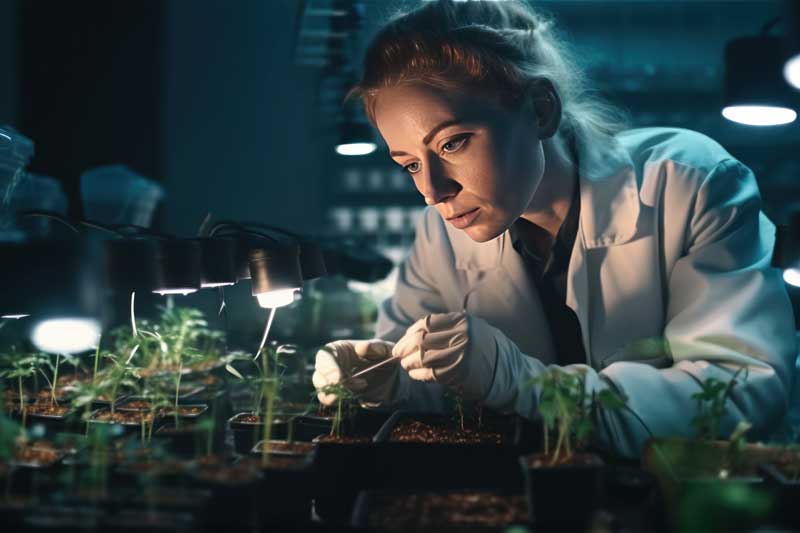April is an important month for many cannabis companies. April 20 is essentially a holiday for marijuana enthusiasts. There are competing theories as to why 4/20 is celebrated as a weed holiday, but the origins don’t much matter to cannabis organizations creating 4/20-themed events to drum up sales.
There’s another April date, though, that cannabis companies will soon be associated with, if they aren’t already: April 22. That’s Earth Day, and the topic of sustainability is one that cannabis organizations have their eyes on. The cannabis industry creates a lot of waste and can be resource-intensive. Here’s why, and how some organizations are using technology to find environmentally friendly solutions.
Environmental impact of packaging
Much of the waste produced by cannabis comes from packaging. Pop-top plastic containers, glass jars, and bags made out of materials like Mylar are all used to package marijuana, and not all recycling centers are able to recycle all of the materials. In Oklahoma, where marijuana is only legalized for medicinal use, there are more than 2,800 licenses approved for medical marijuana businesses, and 10% of residents own a medical marijuana card. For one dispensary, that adds up to as many as 5,000 pop-tops being discarded every month. That number is likely to be higher in states where both medical and recreational-use marijuana are legal.
The amount of packaging that is created by the cannabis industry is so much that it has allowed for the spin-off of a cannabis packaging recycling industry. In Colorado, the organization Green For Green created a recycling network for cannabis packaging, providing receptacles to dispensaries which it periodically picks up, cleaning the containers either for reuse or to be recycled. The organization “believes that collaboration with cannabis enthusiasts can positively influence society’s perspective on the culture.”
Printing problems
The packaging is one issue, the ink used to print on some of the packaging is another. Mylar bags need an oil-based solvent ink for printing, as opposed to a water-based one, which increases its environmental footprint on top of the fact that the Mylar material itself is not made in the United States and needs to be shipped.
Regulations about packaging are constantly being updated, and that has had its own impact. Existing packaged products need to be thrown away, or businesses are reluctant to order large quantities of something at one time, either because the packaging is no longer legal, or the packaging is no good because the printing on it is no longer allowed. The increased amount of small orders leads to excess waste in that production process.
Innovating a solution
For growers, there is a constant awareness that the production of cannabis itself can become more environmentally friendly. Growing cannabis demands a lot of water usage, and some research estimates growing cannabis indoors is responsible for about 1% of all electricity usage in the United States. Some organizations are working with data to help decrease that impact.
Posibl is working to bring automation technology and smart greenhouses to cannabis cultivators across the country. The company’s pesticide-free, climate-controlled greenhouses use less water per pound than traditional indoor growers, and are three times more energy efficient. Sensors measure variables such as humidity, temperature, ventilation, irrigation, and lighting, and all of the data is analyzed to create ideal settings.

The right analytics solution can help organizations keep track of the data that all of this environmental work includes, whether it is the growers and the information that goes into making the best product, or the specifications that meet the constantly changing governmental regulations.
One of the impediments for dispensaries is the price of some of the alternatives. There are products that offer an eco-friendlier alternative to the traditional plastic that companies can have trouble recycling, but they are more expensive. In what can be an over-saturated market, dispensaries are not willing to raise their prices to pay more for packaging when they fear losing customers to companies that are still using less-expensive packaging. What’s good for the environment isn’t always what’s good for a company’s bottom line. There can be tax breaks or other benefits to be found in the data, though. An analytics solution can help crunch the numbers to find what works for both the business and the earth.
Learn more
Curious about what else is going on in the cannabis industry? Check out our white paper—”Top 5 Cannabis Trends for 2023.”
- Analyzing the Challenges of Pharmaceutical Supply Shortages - April 26, 2024
- Summer is an Opportunity for Digital Transformation in Education - April 17, 2024
- Your Car is Tracking More than Miles per Hour - April 11, 2024





